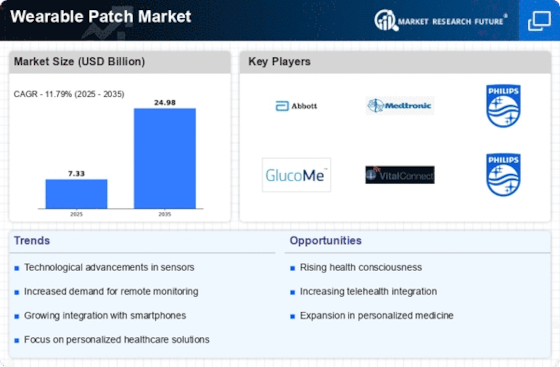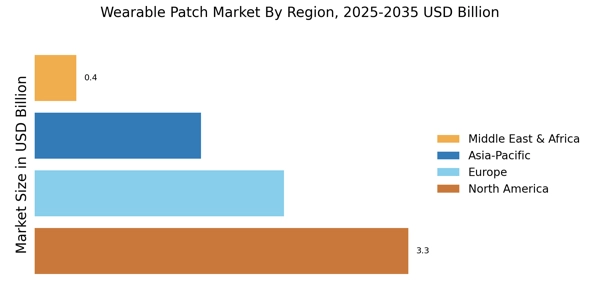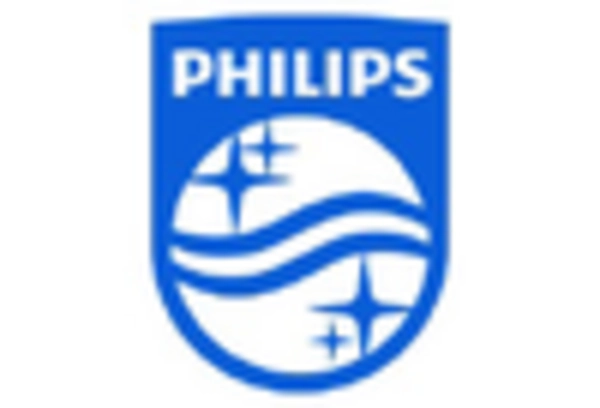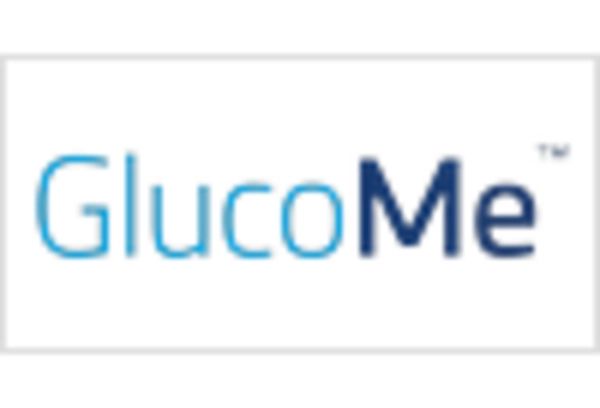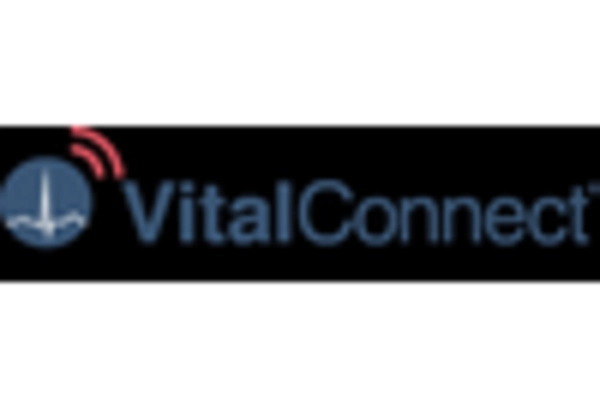Advancements in Sensor Technology
Technological innovations in sensor technology play a pivotal role in shaping the Wearable Patch Market. The development of advanced sensors allows for more accurate and reliable health data collection, which is crucial for both consumers and healthcare providers. For instance, the introduction of biosensors capable of monitoring glucose levels and other vital signs has transformed the way chronic conditions are managed. Market data suggests that the biosensor segment is expected to grow at a compound annual growth rate of 12% through 2027. These advancements not only enhance the functionality of wearable patches but also expand their applications across various health conditions. As sensor technology continues to evolve, the Wearable Patch Market is likely to witness increased adoption rates, driven by the demand for precision in health monitoring.
Growing Focus on Preventive Healthcare
The Wearable Patch Market is significantly influenced by the growing emphasis on preventive healthcare. As individuals become more health-conscious, there is a shift towards proactive health management rather than reactive treatment. Wearable patches serve as effective tools for monitoring health metrics, enabling users to identify potential health issues before they escalate. This trend aligns with the increasing investment in preventive healthcare solutions, which is projected to reach USD 3 trillion by 2025. By providing real-time feedback on health parameters, wearable patches empower users to make informed lifestyle choices. This proactive approach not only enhances individual well-being but also alleviates the burden on healthcare systems. Consequently, the focus on preventive healthcare is a key driver of growth within the Wearable Patch Market.
Integration with Mobile Health Applications
The integration of wearable patches with mobile health applications is a transformative trend within the Wearable Patch Market. This synergy allows users to track their health data seamlessly, enhancing user experience and engagement. Mobile health applications provide a platform for data visualization, enabling users to monitor their health metrics over time. Market analysis indicates that the mobile health application market is expected to reach USD 150 billion by 2026, highlighting the potential for wearable patches to capitalize on this growth. Furthermore, the integration facilitates data sharing with healthcare providers, fostering collaborative care. As consumers increasingly rely on mobile technology for health management, the Wearable Patch Market is likely to benefit from this trend, driving innovation and adoption.
Rising Demand for Remote Patient Monitoring
The Wearable Patch Market experiences a notable surge in demand for remote patient monitoring solutions. As healthcare systems increasingly prioritize patient-centric care, wearable patches offer a convenient method for continuous health monitoring. This trend is supported by data indicating that the remote patient monitoring market is projected to reach USD 2.5 billion by 2026. Wearable patches facilitate real-time data collection, enabling healthcare providers to make informed decisions. This shift towards remote monitoring not only enhances patient engagement but also reduces hospital visits, thereby optimizing healthcare resources. The integration of wearable patches into telehealth services further amplifies their relevance, as patients seek more accessible healthcare solutions. Consequently, the rising demand for remote patient monitoring significantly propels the growth of the Wearable Patch Market.
Increased Investment in Health Tech Startups
The Wearable Patch Market is witnessing a surge in investment directed towards health tech startups. Venture capital funding in health technology has reached unprecedented levels, with investments exceeding USD 20 billion in recent years. This influx of capital is fostering innovation in wearable technology, particularly in the development of advanced patches that monitor various health parameters. Startups are increasingly focusing on creating user-friendly and multifunctional wearable patches that cater to diverse health needs. This trend not only accelerates technological advancements but also enhances competition within the Wearable Patch Market. As more startups enter the market, consumers are likely to benefit from a wider array of options, driving further growth and adoption of wearable patches.


